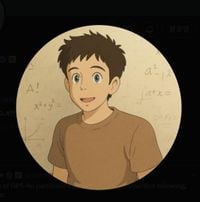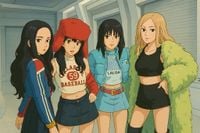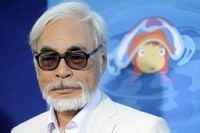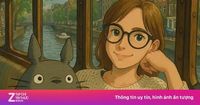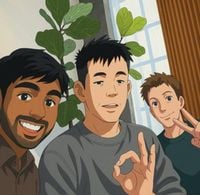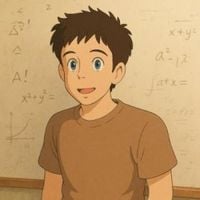OpenAI's recent launch of the 'ChatGPT-4o Image Generation' feature has ignited a global trend of creating images in the style of Studio Ghibli, raising significant copyright concerns. According to an AP report on March 28, 2025, OpenAI's encouragement for users to generate 'Ghibli-style drawings' has prompted questions regarding potential infringements on the copyrights held by Studio Ghibli and its renowned director, Hayao Miyazaki.
Sam Altman, the CEO of OpenAI, revealed on March 27, 2025, that he received hundreds of messages from users who had created images of him in the 'Ghibli style'. This surge in creativity, however, has not come without controversy. Legal experts are now questioning whether OpenAI's AI model was trained on works by Studio Ghibli or Miyazaki and whether the company obtained the necessary licenses to use those works.
Josh Wyzgowski, an attorney at the law firm Cashman, stated, "The issue is whether OpenAI's AI model was trained on Studio Ghibli or Miyazaki's works and if they received the appropriate licenses or approvals to do so." He emphasized that using such works without consent or compensation could lead to copyright infringement. While there is a general principle that vague 'styles' are not protected by copyright, Wyzgowski pointed out that specific, identifiable elements from artistic works could be scrutinized for potential violations.
OpenAI has acknowledged the controversy, stating in a technical document that they have introduced a feature to reject attempts to mimic individual artists' styles. However, they maintain that broader 'studio styles', such as that of Ghibli, are more permissibly utilized. So far, Studio Ghibli has not issued an official statement regarding the matter.
Amidst these concerns, Altman noted that the popularity of the ChatGPT-4o Image Generation feature has led to server overload, with GPUs reportedly 'melting down' due to the high demand. He mentioned, "Seeing people love the image model is really rewarding, but we will temporarily limit the use of the feature while we improve performance." This decision comes after Altman had previously announced that the free release of the image generation feature would be delayed due to unexpectedly high traffic.
The trend of converting images into Ghibli style has taken social media by storm, with users praising the update as a 'revolutionary' enhancement of OpenAI's capabilities. The new image generation tool, introduced on March 25, 2025, integrates the multi-modal model 'GPT-4o' with advanced features for text rendering, multi-turn generation, command execution, and in-context learning.
Users have responded positively to the update, particularly highlighting improvements in text rendering, which now allows for clearer and more accurate representations of text within images. The multi-turn generation feature enables users to iteratively modify images during conversations, maintaining consistency in character design even after multiple adjustments.
Despite the praise, the rapid proliferation of Ghibli-style images has sparked backlash, with some users creating inappropriate or controversial content, including depictions of historical events and public figures in a whimsical Ghibli style. Altman himself participated in the trend, changing his profile picture on social media to a Ghibli-styled image of himself.
As the debate over copyright infringement continues, artists and critics are voicing their concerns. Karla Ortiz, an artist involved in a copyright lawsuit against other AI image generators, criticized OpenAI's actions, arguing that companies like OpenAI disregard the works and livelihoods of artists. Ortiz stated, "This is another clear example of how companies like OpenAI do not care about the works and livelihoods of artists. It's exploitative to use Ghibli's branding and reputation to promote OpenAI's products."
Furthermore, the legal landscape surrounding AI-generated content is becoming increasingly complex. While some legal experts argue that artistic styles are not explicitly protected by copyright law, others believe that the use of specific elements from copyrighted works could lead to legal challenges. Evan Brown, an intellectual property attorney, noted that OpenAI's creation of images resembling Ghibli films is unlikely to violate the law, as artistic styles are not explicitly protected.
However, the conversation around AI and copyright is far from settled. Julia Alexander, a journalist with a background in the animation industry, expressed skepticism about AI's ability to capture the genuine spirit and values of Studio Ghibli, which has always prioritized hand-drawn art. She emphasized the importance of respecting the studio's artistic legacy.
As OpenAI navigates this controversial landscape, the company is also facing lawsuits from various artists and media organizations, alleging that their works were used without permission in training AI models. This ongoing legal scrutiny highlights the urgent need for clearer guidelines regarding the use of copyrighted material in AI training.
In conclusion, while the ChatGPT-4o Image Generation feature has opened new avenues for creativity and engagement, it has also raised critical questions about copyright, artistic integrity, and the responsibilities of AI developers. As the trend of Ghibli-style images continues to flourish, the intersection of technology and art remains a contentious and evolving battleground.
